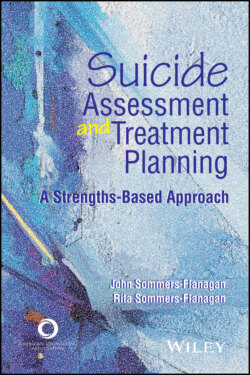Читать книгу Suicide Assessment and Treatment Planning - John Sommers-Flanagan - Страница 40
Chapter 2
Competence and Ethics
ОглавлениеImagine you are working with Kevin, a 21-year-old college student. Kevin identifies as a White cisgender heterosexual male. He is mandated to see you for five sessions after receiving a campus citation for using alcohol in his dorm. During your first three sessions, he strikes you as affable, engaging, and relatively well adjusted. He is physically fit, gets good grades, and does not seem depressed. Kevin acknowledges that his father had problems with alcohol; he openly admits to guilt over his own use. During the second session, Kevin expresses an interest in cutting back on drinking, partly because of his father’s problems and partly because his girlfriend thinks he drinks too much. Then, after his third session, out of the blue, you get a call from his girlfriend. She tells you she is breaking up with Kevin, and he is threatening suicide. She says, “Kevin needs to see you right away,” and asks you to call him. Tragically, before you make contact, Kevin places the barrel of a gun in his mouth, pulls the trigger, and dies by suicide.
In the swirling aftermath of Kevin’s suicide, you are emotionally devastated. You keep replaying session vignettes in your mind, wondering, “How could this have happened?” and “What did I miss?” Your confidence is shaken. You are questioning your professional competence.
